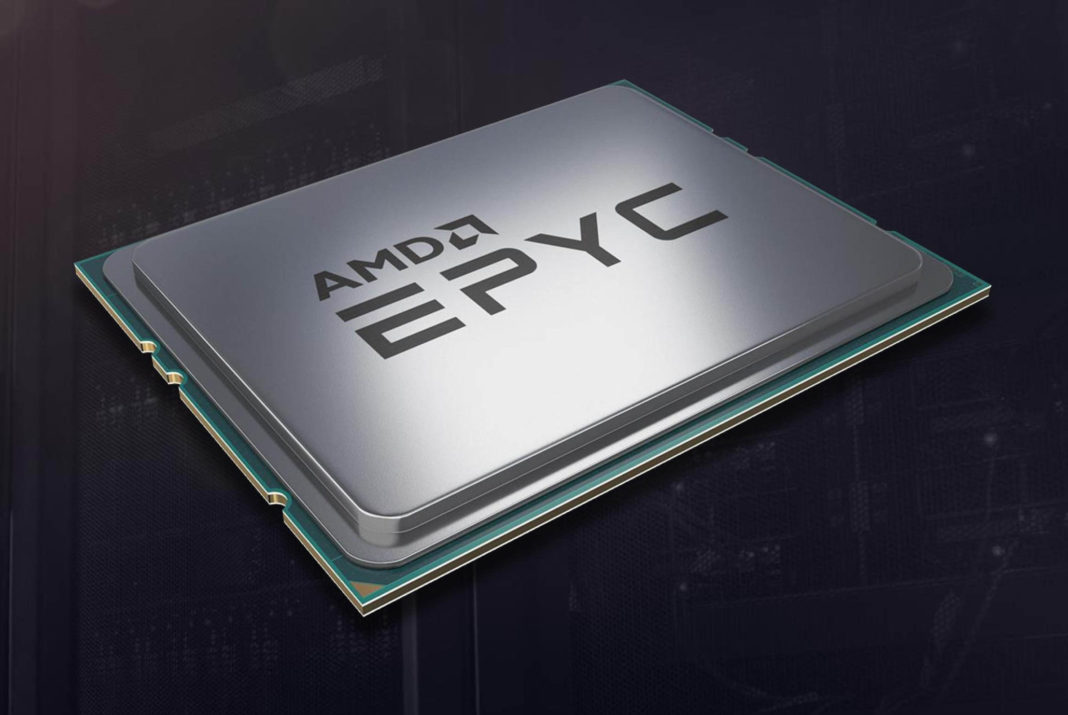— Adoption of AMD EPYC processors in Top500 list of world’s fastest supercomputers accelerates; number of AMD-powered systems doubles since November and EPYC processors power half of the newly ranked systems —
— AMD EPYC™ processors and AMD Instinct™ accelerators enabling engineering breakthroughs and powering research addressing the world’s most complex scientific challenges —
At this year’s International Supercomputing 2021 digital event,AMD (NASDAQ: AMD) is showcasing momentum for its AMD EPYC™ processors and AMD Instinct™ accelerators across the High Performance Computing (HPC) industry. The company also outlined updates to the ROCm™ open software platform and introduced the AMD Instinct™ Education and Research (AIER) initiative. The latest Top500 list showcased the continued growth of AMD EPYC processors for HPC systems. AMD EPYC processors power nearly 5x more systems compared to the June 2020 list, and more than double the number of systems compared to November 2020. As well, AMD EPYC processors power half of the 58 new entries on the June 2021 list.
“High performance computing is critical to addressing the world’s biggest and most important challenges,” said Forrest Norrod, senior vice president and general manager, data center and embedded systems group, AMD. “With our AMD EPYC processor family and Instinct accelerators, AMD continues to be the partner of choice for HPC. We are committed to enabling the performance and capabilities needed to advance scientific discoveries, break the exascale barrier, and continue driving innovation.”
AMD HPC Momentum Continues
With the recent launch of the AMD EPYC 7003 Series processor, which provides industry leading performance for HPC workloads1, AMD is continuing to enable its partners and customers to deploy all sizes of clusters, across key research areas including manufacturing, life sciences, financial services, climate research and more.
A 2020 Intersect360 perception study of HPC users’ impressions of CPUs showed that AMD EPYC processors had a 78 percent favorable impression amongst respondents, growing from 36 percent in 20162. In a 2021 study from Intersect360 asking HPC institutions about AMD EPYC penetration within their sites, 23 percent of respondents said they have broad usage of AMD EPYC processors, and an additional 47 percent said they are testing or using AMD EPYC processors at some level3.
Recent systems utilizing AMD HPC solutions include:
- Bulgaria’s EuroHPC Atos BullSequana XH2000 supercomputer, powered by AMD EPYC processors for scientific development in bioinformatics, pharmacy, artificial intelligence, meteorology and more.
- The University of Cambridge’s Cambridge Service for Data Driven Discovery (CSD3) system, with Dell EMC PowerEdge XE8545 servers powered by 3rd Gen AMD EPYC processors.
- Durham University’s COSMA8supercomputer with Dell EMC PowerEdge C6525 servers powered by 2nd and 3rd Gen AMD EPYC processors.
- Microsoft Azure supercomputers for UK Met Office using 3rd Gen AMD EPYC processors and next generation AMD EPYC processors in an HPE Cray EX supercomputer, delivering an expected 60 petaflops of advanced supercomputing capabilities for weather and climate research.
- National Center for Atmospheric Research’s supercomputer, powered by 3rd Gen AMD EPYC processors and the HPE Cray EX supercomputer, supporting the nation’s advanced research and understanding of geosciences.
- The Perlmutter supercomputer from the National Energy Research Scientific Computing Center (NERSC) and Lawrence Berkeley National Laboratory features nodes that include 3rd Gen AMD EPYC processors in an HPE Cray EX supercomputer that provides four times the computational power currently available at NERSC.
- The Singapore National Supercomputing Centre supercomputer, built by HPE, powered by 3rd Gen AMD EPYC processors and expected to have a peak theoretical performance of 10 petaflops.
Updates to AMD ROCm™ Software Support
AMD is introducing its new AMD Instinct Education and Research (AIER) initiative, designed to help scientists, researchers and academics accelerate the performance of their code on AMD Instinct Accelerators. The AIER initiative, based on member requirements, offers remote access to AMD Instinct technologies, the AMD ROCm Learning Center, and ROCm software and support as well as access to technical guidance on AMD software and hardware solutions. In addition to regional Solution Partners, AIER Global Solution Partners include Dell Technologies, Gigabyte, Hewlett Packard Enterprise, and Supermicro.
The ROCm open software platform continues to gain industry support and momentum with a growing list of applications, third-party libraries, and frameworks supporting AMD accelerators. The HPC community has embraced HIP as a heterogenous programming model, that developers use to write or adapt their codes to for acceleration on AMD’s GPUs including Gromacs, TensorFlow, and GridTools.
Additionally, PyTorch for ROCm is now available as an installable Python package and includes full capability for mixed-precision and large-scale training using AMD’s MIOpen and RCCL (communications) libraries. This innovation provides a new option for data scientists, researchers, students, and others in the community to get started with accelerated PyTorch using AMD GPUs. Most recently, CuPy, an open-source array library with Python, has expanded its traditional GPU support with the introduction of version 9.0 that now offers support for the ROCm stack for GPU-accelerated computing.
Commitment to Advancing Research
Last year, AMD announced its HPC Fund for COVID-19 research, which included a donation of systems powered by AMD EPYC processors and AMD Instinct accelerators to provide researchers with petaflop-scale compute power to fight the pandemic. With over 12 petaflops of capacity awarded to-date, AMD has since delivered HPC capabilities to 23 institutions across seven countries including Massachusetts Institute of Technology (MIT), New York University (NYU), Rice University, University of Texas at Austin and University of Toronto.
“From COVID-19 research to analyzing genome architectures, AMD CPU and GPU processors help the Center for Theoretical Biological Physics to run some codes from 1,000 to 10,000 times faster than before,” said Peter Rossky, the Harry C and Olga K. Wiess Professor of Natural Sciences. “The ability to run parallel simulations on this game-changing equipment enables the full analysis of one chromosome in as little as 20 minutes – research that used to take up to a month to complete. These accomplishments come just months after adding the high-performance computing capabilities from AMD, and we expect adoption across our researcher community to grow exponentially.”








